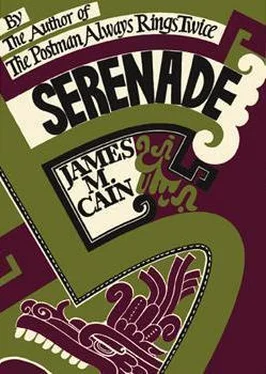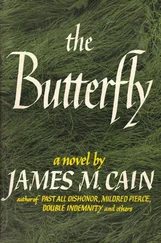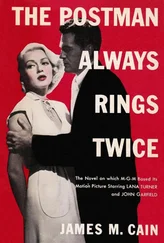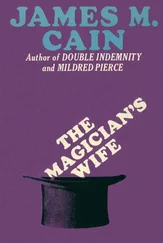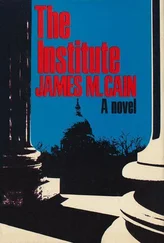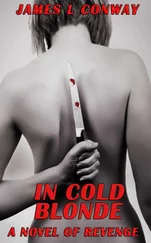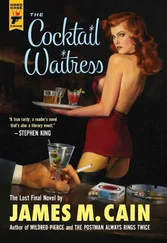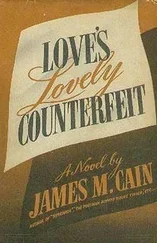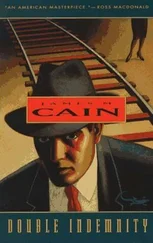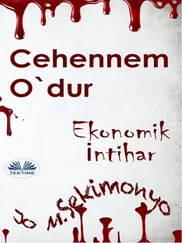“No, please. I like New York.”
“Money, Juana. And everything. Back we go.”
“But why? We have much money.”
“And no place to sing. By tomorrow not even a night club will hire me. Unions. Injunctions. Contracts.”
“No, we stay in New York. You take guitar, be a mariachi , just you, Hoaney. You sing for me.”
“We got to go back.”
I sat beside her, and she kept running her fingers through my hair. We didn’t say anything for a long time. The phone rang. She motioned to let it alone. If I hadn’t picked it up, our whole life would have been different.
Winston Hawes, the papers said, was one of the outstanding musicians of his time, the conductor that could really read a score, the man that had done more for modern music than anybody since Muck. He was all of that, but don’t get the idea he was ever one of the boys. There was something wrong about the way he thought about music, something unhealthy, like the crowds you always saw at his concerts, and what it was I can only half tell you. In the first place I don’t know enough about the kind of people he came from, and in the second place I don’t know enough about music. He was rich, and there’s something about rich people that’s different from the rest of us. They come into the world with an inflated idea of their relation to it, and everything they find in it. I got a little flash into that side of him once, in Paris, when I strolled into an art store to look at some pictures that caught my eye. A guy came in, an American, and began a palaver about prices. And the way that guy talked gave me a whole new slant at his kind. He didn’t care about art, the way you do or I do, as something to look at and feel. He wanted to own it. Winston was that way about music. He made a whore out of it. You went to his concerts, but you didn’t sit out there at his rehearsals, and see him hold men for an hour overtime, at full pay, just because there was some French horn passage that he liked, and wanted it played over and over again — not to rehearse it, but because of what it did to him . And you didn’t walk out with him afterwards, and see him all atremble, and hear him tell how he felt after playing it. He was like some woman that goes to concerts because they give her the right vibrations, or make her feel better, or have some other effect on her nitwit insides. All right, you may think it’s cock-eyed to compare him with somebody like that, but I’m telling you that in spite of all his technical skill, he was a hell of a sight nearer to that fat poop than he ever was to Muck. That woman was in him, poodle dog, diamonds, limousine, conceit, cruelty and all, and don’t let his public reputation fool you. She has a public reputation too, if she hands out enough money. The day the story broke, they compared him with Stanford White, but I’m telling you that to put Winston Hawes in the same class with Stanford White was a desecration.
You can’t own music, the way you can own a picture, but you can own a big hunk of it. You can own a composer, that you put on a subsidy while he’s writing a piece for you. You can own an audience that has to come to you to hear that piece if it’s going to hear it at all. You can own the orchestra that plays it, and you can own the singer that sings it. I first met him in Paris. I hadn’t known him in Chicago. He came from a packing family so rich I never even got within a mile of where they lived. And I didn’t look him up, even in Paris. He showed up at my apartment one day, sat down at the piano, played off a couple of songs that were there, and said they were lousy, which they were. Then he got up and asked me how I’d like to sing with his band. I was pretty excited. He had started his Petite Orchestra about a year before, and I had gone to plenty of the concerts, and don’t you think they weren’t good. He started with thirty men, but by now he was up to forty. He raided everywhere, from the opera orchestras, from the chamber music outfits, and he took anybody he wanted, because he paid about twice what any other band paid. He footed the deficit himself, and he didn’t have a man that couldn’t have played quartets with Heifetz. What they could do to music, especially modern music, was just make it sound about twice as good as even the composer thought it was. He had some stuff with him he wanted me to do, all of it in manuscript. Part of it was old Italian songs he had dug up, where I would have to do baritone coloratura that had been out of date for a hundred years, and how he knew I could do it I don’t know. Part of it was a suite by his first viola, that had never been performed yet. It was tough stuff, music that wouldn’t come to life at all without the most exact tone shading. But he gave me six rehearsals — count them, six, something you couldn’t believe. Cost didn’t mean anything to him. When we went on with it I was with those woodwinds like I was one of the bassoons, and the response was terrific. I took out Picquot, the viola, before I took a call myself, and the whole thing was like something you read about.
That part of it, I wouldn’t be telling the truth if I didn’t admit it was an adventure in music I’ll never forget. I sang for him four times, and each time it was something new, something fresh, and a performance better than you even knew you could give. He had a live stick all right. From some of them you get a beat as dead as an undertaker’s handshake, but not from him. He threw it on you like a hypnotist, and you began to roll it out, and yet it was all under perfect control. That’s the word to remember, perfect. Perfection is something no singer ever got yet, but under him you came as near to it as you’re ever going to get.
That was the beginning of it, and it was quite a while before it dawned on me what he really wanted. As to what he wanted, and what he got, you’ll find out soon enough, and I’m not going to tell any more than I have to. But I’d like to make this much clear now: that wasn’t what I wanted. What I meant to him and what he meant to me were two different things, but once again, I wouldn’t be telling the truth if I didn’t admit that what he meant to me was plenty. He took to dropping into my dressing room at the Comique while I was washing up, and he’d tell me some little thing I had done, something he had liked, or sometimes, something he hadn’t liked. If he had been giving a concert, maybe he had heard only part of the last act, but there would always be something. You think that didn’t mean anything to me? Singing is a funny job. You go out there and take those calls, and it’s so exciting that when you get back to your dressing room you want to sing, to cut it loose till the windows rattle, just to let off the steam that excitement makes. You go back there and you’ll hear them, especially the tenors, so you’d think they had gone crazy. But that excitement is all from out front, from a mob you only half see and never know, and you get so you’d give anything for somebody, for just one guy, that knew what you were trying to do, that spotted your idea without your telling him, that could appreciate you with his head and not with the palms of his hands. And mind you, it couldn’t be just anybody. It has to be somebody you respect, somebody that knows.
I began to wait for that visit. Then pretty soon I was singing to him and to nobody else. We’d walk out, go to a café while I ate, then drop over to his apartment off the Place Vendóme, and have a post-mortem on my performance. Then, little by little, he began making suggestions. Then I began dropping in on him in the morning, and he’d take me through some things I had been doing wrong. He was the best coach in the world, bar none. Then he began to take my acting apart, and put it together again. It was he that cured me of all those operatic gestures I got in Italy. He showed me that good operatic acting consists in as few motions as possible, every one of them calculated for an effect, and every one made to count. He told me about Scotti and how he used to sing the Pagliacci Prologue before he got so bad they couldn’t use him in Pagliacci. He made one gesture. At the end of the andante, he held out his hand, and then turned it over, palm up. That was all. It said it. He made me learn a whole new set of gestures, done naturally, and he made me practice for hours singing sotto voce without using any gestures at all. That’s a tough order, just to stand up there, on a cold stage, and shoot it. But I got so I could do it.And I got so I could take my time, give it to them when I was ready, not before. I began to do better in comedy roles, like Sharpless and Marcello. Taking out all that gingerbread, I could watch timing, and get laughs I never got before. I got so I was with him morning, noon and night, and depended on him like a hophead depends on dope.
Читать дальше
